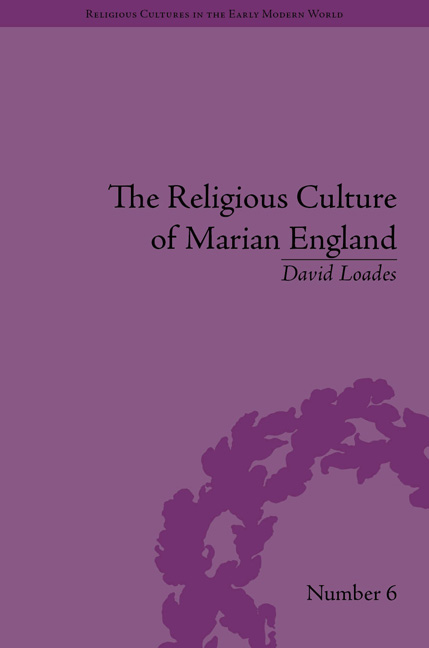Book contents
2 - Elite Religion
Summary
As the Reformation developed, the Protestant churches began to split apart, giving their Catholic opponents many polemical opportunities. Lutherans disagreed with Zwinglians over the Eucharist, and both were derided by radical sects which were given a new lease of life by the disputes.
The Catholic publicist Miles Huggarde commented ‘if these good fellows will needs be of Christ's church, as arrogantly they presume by their own confession, they must needs have one unity of doctrine as the church hath, which surely they have not’, adding that punishments were not so various in hell as were the doctrines of these same Protestants. However, the unity of the Catholic position was more established in Huggarde's imagination than it was in reality. Admittedly there were not the same rather obvious disagreements over the Eucharistic presence as divided Protestants, but the transmission of grace was almost equally contentious and the strictly Pauline position taken by Cardinal Pole caused him to be regarded in conservative circles as a crypto-Lutheran. It was this dispute, going back nearly twenty years, which prompted Pope Paul IV to regard the Cardinal as a heretic, and led to his summons to return to Rome for ‘investigation’.
It was the business of a General Council to resolve such issues, and such a council had met at Trent in 1545–7 and again in 1552–3. However, its decrees remained in draft, having never been confirmed, and it had not in any case approached the issue of the transmission of grace. What it had done was to repudiate most of the biblical scholarship of the last hundred years, and reaffirmed the sanctity of the Vulgate (Jerome) Bible, which was declared to be the only authentic text. This was a decision with which Pole was in profound disagreement, but as the decree was unratified, it did not greatly affect his mission. What was relevant was the Cardinal's attitude towards the English Bible which he found still installed in many parish churches.
- Type
- Chapter
- Information
- The Religious Culture of Marian England , pp. 33 - 48Publisher: Pickering & ChattoFirst published in: 2014



